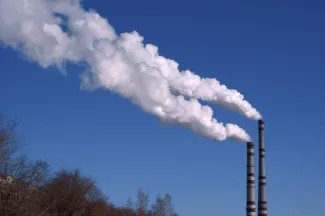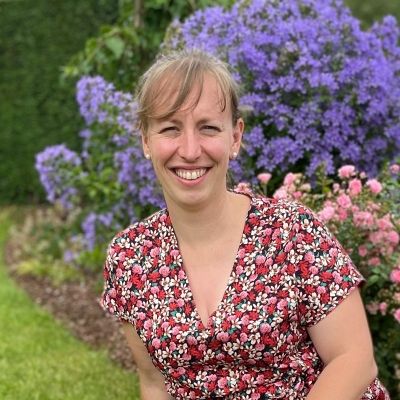Map-it CCU: supporting industry with CCUS knowledge and guidance
The Map-it CCU project is a VLAIO intercluster COOCK project, supported by the spearhead clusters Catalisti and FLUX50. The project was shaped within the CAPTURE community, with a blueprint based on current and future needs of Flemish companies: they require access to a structured overview and selection of feasible cleantech technologies and value chains for their sustainability roadmaps and pursuit of becoming CO2 neutral.

Supporting Flemish industry and beyond
Under the coordination of VITO, four scientific-excellent knowledge institutes and CAPTURE partners, i.e., UGent, UA, VUB and VITO, collaborate in the development of such a supportive tool for the Flemish industry and beyond. Map-it CCU focuses on Carbon Capture, Utilization and Storage (CCUS), as a feasible strategy to reduce the CO2 footprint of industrial activities, complementary to alternative sustainability strategies, such as electrification and the use of renewable raw materials.
The overall ambition of Map-it CCU is to create impact in several sectors via multi-stakeholder value chain exploration. For this, knowledge on CCUS technologies and value chains should be collected, centralized, translated and disseminated in a structured way. This is done via training activities, Massive Open Online Courses (MOOCs) and workshops. These activities are set in motion in January 2024 and will span over a 1.5 year duration.
Which sectors and CO2 sources are targeted by Map-it CCU?
Map-it CCU’s approach towards the industrial stakeholders starts from the current ETS landscape of industrial CO2 emissions in Flanders: large companies, which are already actively involved in CCUS value chains today are known to have high CO2 emissions, often at a single point source and at an elevated CO2 content (25-50 %). Carbon Capture seems straightforward and economically viable in these situations. At the same time, a large group of companies exists who emit low-concentrated (4-15%, typically from combustion processes) and complex CO2 streams, at rates of <1 million ton per year: resp. 84 and 49 % of the point sources are smaller than 100 and 10 kiloton per year. Map-it CCU gives priority to these ‘smaller’ ETS emitters, for whom small-scale CO2 capture and further valorization seems less obvious and where typically less expertise is present within the specific company. Also, non-ETS emitters and sectors are targeted, such as biogas producers and the food industry, next to companies interested in CO2 conversion. These can be both SMEs and large companies.
Answering the need for knowledge and a decision framework
Besides the techno-economic challenges with regards to CO2 capture, the setup of new industrial value chains in Flanders, starting from CO2 and its application as raw material or storage underground still seems difficult today. Indeed, technological developments are not yet sufficiently known or mature, while technology value chains, based on existing platforms, encounter technical, market-related and legislative hurdles. In addition, CCUS technologies are often not part of the core activities of most companies and there is a need for a clear overview of the available and developing technologies and a decision framework that allows one to make a choice from the vast range of technology options, that seem suitable for a specific situation.
The goal of Map-it CCU is to centralize the knowledge about the valorization of industrial CO2 waste streams in a knowledge matrix and its translation into a decision framework, including following key steps in the CCUS value chain:
- Existing and new CO2 capture technologies in terms of their applicability for given CO2 sources.
- Purification and conditioning steps to treat captured stream towards the desired specs for supply to a central CO2 pipeline and/or direct conversion to the desired products.
- Conversion options of purified and conditioned CO2 streams into end products (CCU, e.g., chemicals and fuels) or their final storage (e.g., CCS and mineralization).
In Map-it CCU, the acquired knowledge will be disseminated to the Flemish process industry, energy production and the materials industry.
The relevance, quality and applicability of the Map-it CCU tool will be safeguarded by a dedicated industrial advisory board (IAB) of twenty members, that involves companies from the Smart Delta Resources Flanders community, CAPTURE’s Business platform, selected SME’s, the food industry and the spearhead clusters. The composition of IAB members is considerable diverse in relation to their role in CCUS value chains, industrial sector affiliation, annual CO2 emissions, proficiency in CCUS core concepts, and company size.




